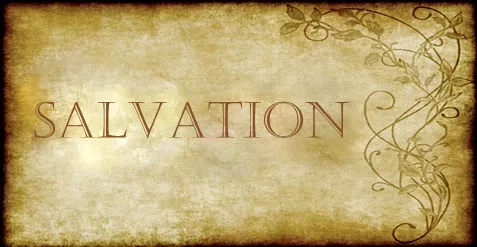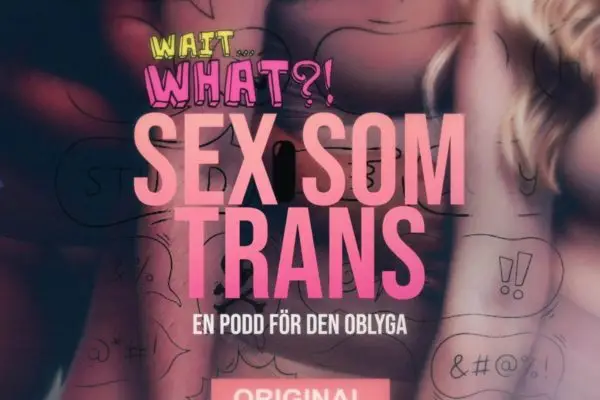I have been returning to thoughts about this the last couple of days in several conversations with friends. As an officer of the Salvation Army I think it is an important question that needs to be contemplated often.
For many people Salvation is a word that is not used much, it is an antiquated religious notion that has little bearing on everyday life. For me, however it is a central question, that occupies all that I do, every day.
Salvation as forgiveness of sin
Most people are familiar with Salvation as a simple transaction: Jesus life for my sin equals salvation. While I agree that part of Salvation is forgiveness, I think that this needs some closer examination.
The most common word for sin in the bible is hamartia which most often is translated as missing the mark. For most people this slots nicely into the sin management system preached in most churches. There are certain things you are not supposed to do, when you do these things (a different list for each religious community) you miss the mark (of holiness). Personally I think this is way to narrow an explanation both of sin and also becomes a much to small salvation.
The perennial tradition states that:
There is a Divine Reality underneath and inherent in the world of things,
There is in the human soul a natural capacity, similarity, and longing for this Divine Reality, and
The final goal of existence is union with this Divine Reality.
If we can agree to this then maybe missing the mark is when any person finds themselves not in union with the divine reality. Salvation then becomes union with divine reality!
Merton writes:
Therefore there is only one problem on which all my existence, my peace and my happiness depend: to discover myself in discovering God. If I find Him I will find myself and if I find my true self I will find Him.
Salvation and forgiveness is then finding that the truth about me is that there never was a division between me and the divine. The process of forgiveness is not so much god forgiving me as it is me forgiving myself for all the ways I have missed the mark and for holding on to a view of reality where I am separated from the divine.
Salvation then is becoming my true self, embracing all the parts of me, including my shadow and accepting that as a human being I am loved and I am part of the oneness of the divine.
Repentance (metanoia) is a change of heart, seeing the world differently, not asking for forgiveness. Believing (as in trusting, loving) in your heart that Jesus Christ is truth incarnate, the truth that all are one, there is no separation between human and god.
Jim Palmer writes that:
Metanoia … It’s a turning about in the deepest seat of our consciousness or awareness. It’s looking out at the way things are through a different pair of eyes … The word “repent” does not mean to be sorry for your past wrongs or to turn away from a life of sin. The word “repent” (metanoia) means “beyond the mind” or beyond the way we typically process something. In other words, Jesus said that the Kingdom of God is here now but you can’t know it in the same way we are accustomed to knowing other things. Metanoia involves knowing something a different way.
Salvation as healing
One of the most used words for salvation is in the greek text soterion, which means healing: Becoming whole. Just as the word religion comes from latin and means to re-connect (with the whole). So maybe, instead of seeing salvation as this judiciary process where we plea-bargain forgiveness, freedom and a ticket to a future fairy land over the rainbow maybe we can see salvation as the process of becoming whole. Or rather the process of repenting/waking up and understanding that at the deepest level we are already whole and in unity with the divine.
What of the cross? As an evangelical christian I have been taught that there is a great divide separating me from god and that the cross is the bridge a/cross the great divide. If I was always one with the divine what purpose does then the cross fill?
If I am depressed and I go to psychologist who helps me see that life is indeed filled with wonder and purpose and I walk out of that office without my depression is not this psychologist my healer, even though I already lived in such a world?
In the same way, it does not matter if the divide between me and the divine is real or imagined, if the cross helps me like the roman centurion to realise that Jesus was indeed the son of god, and that Jesus teaching that the kingdom of god is already at hand then is not that cross still the instrument of my heeling, my salvation?
Understanding the truth that Jesus manifests (Jesus said, I am the truth, not I know the truth) is understanding that Jesus was 100% god, 100% man and that this is the truth of salvation, the way of salvation and life itself. That Jesus would insist on this “even unto death, death on a cross” becomes the key to accepting and understanding this truth not with your mind but with your entire being.
Salvation as coming home
So Salvation then is a coming home of sorts. realising what was always already true, that I to am a son of god. I can return home like the prodigal son and step into what was already true. That I belong, I am one with this divine that is the foundation of all this universe: the divine.
The good news is that Abba stands at the crossroads, waiting for your metanoia your homecoming to what is and always has been true. You belong!
Salvation for the world
Creation is groaning, Paul tells us, longing for salvation, healing. When i at last repent, see the underlying truth that all is one. I first become whole in myself and with myself, with what was already true about me. I then realise that I am also one with all the people I have around me and work for wholeness not only in my life but in my community and in society at large. I will also see that I am not only one with god and with the people around me, but also with the rest of creation. I therefore start working at unifying and healing the world around me.
What would this world look like if we all realised that we are one with god, on another and the creation wi live in as integral interdependent parts of?
Those who follow Jesus are to become wholemakers, uniting what is scattered, creating a deeper unity in love. … Christian life is a commitment to love, to give birth to God in one’s own life and to become midwives of divinity in this evolving cosmos. We are to be wholemakers of love in a world of change. – Ilia Delio
Heresy?
As I write this I can hear the pitchforks clanging and the torches burning, the distant cries of “heresy”.
But is it really? What else did Jesus mean when he spoke of the kingdom of god within? What else did Jesus mean when he stated in his clandestine meeting with Nicodemus that he must be born again, not in the flesh, but in spirit.
What else could Jesus possibly have meant when he prayed:
I am asking on their behalf; I am not asking on behalf of the world, but on behalf of those whom you gave me, because they are yours. All mine are yours, and yours are mine; and I have been glorified in them. And now I am no longer in the world, but they are in the world, and I am coming to you. Holy Father, protect them in your name that you have given me, so that they may be one, as we are one. … I ask not only on behalf of these, but also on behalf of those who will believe in me through their word, that they may all be one. As you, Father, are in me and I am in you, may they also be in us, so that the world may believe that you have sent me. The glory that you have given me I have given them, so that they may be one, as we are one, I in them and you in me, that they may become completely one, so that the world may know that you have sent me and have loved them even as you have loved me. (John 17 selected verses, emphasis added)
What else could he possibly mean than the truth that all are one? Or what else could Paul possibly mean in his letter to the Galatians where he asserts:
There is no longer Jew or Greek, there is no longer slave or free, there is no longer male and female; for all of you are one in Christ Jesus.
So what?
What then? If it is true that repentance is to see the world in a profoundly different way that salvation is to wake up and realise that we all are one, that there is no separation between you and god, how would our lives be different then?
Would not all reconciliations be salvific acts, would not all hugs be sacramental. All instances where people, societies and nature becomes a unified whole manifestations of the kingdom of god. Would not evangelism become the proclaiming of this truth: “we are one” and all acts of whole making whether on the personal, societal or universal plane be at least evangelistic if not salvific acts?
Would it not make each and everyone of us an evangelist with the commission to heal each other and by that heal the world?
Every person would be holy and important to us every place sacred and every moment filled with salvation potential.
Churches would become houses of healing: physical, emotional, psychological, relational and societal healing. Hospitals, psychologists offices, counselling rooms, government buildings an NGO headquarters would become churches and we could se the divine hand in every act towards wholeness.
I want to live in this world, to me this is the kingdom of god.







I want to live in that kind of world too!
“It was the question of salvation that was at stake in the Christological controversies of the fourth and fifth centuries. The Nicaean – Constantinopolitan Creed ( 381 A.D.) associates salvation with the incarnation – “for our salvation . . . he became incarnate”, but these words were not themselves at the centre of the controversies. What was at stake is encapsulated by Athanasius when he stated that “the Son of God became human so that we might become God”, [1] and by Gregory Nazianzen – also known as “The Theologian” due to his influence at the Council of Constantinople – in his axiom that, “What has not been assumed has not been healed”. [2] In other words, although the mode of our salvation was not the explicit concern of the Christological councils, it was implicit in that our salvation hinged upon the person of Christ in whom salvation was accomplished. The debates about the human and divine natures of Christ are in fact debates about the nature of our salvation. Otherwise, why did the ontological status of Christ matter so much?”
http://dlibrary.acu.edu.au/staffhome/dacasey/salvationasparticipation.html